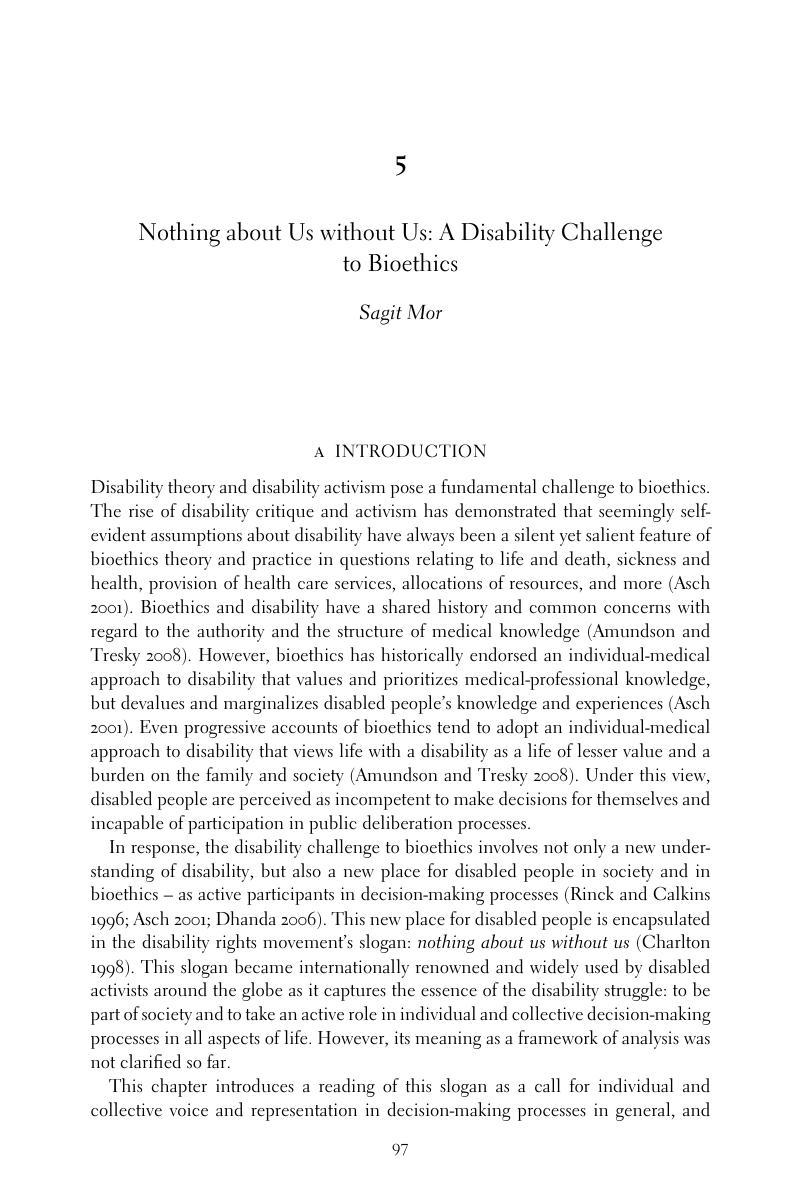Book contents
- Bioethics and Biopolitics in Israel
- Bioethics and Biopolitics in Israel
- Copyright page
- Contents
- Contributors
- Introduction: Bioethics in Israel
- Part I Bioethics as Biopolitics
- 1 Securitization of Public Health Preparedness in Israel and Palestine: A Challenge for Public Health Ethics
- 2 Republican Bioethics
- 3 Force and Feeding: From Bioethics to Biopolitics in Recent Israeli Legislation about Force-Feeding Hunger-Striking Inmates
- 4 A Cognitive Dissonant Health System: Can We Combat Racism without Admitting It Exists?
- 5 Nothing about Us without Us: A Disability Challenge to Bioethics
- Part II Familialism and Reproduction
- Part III Is There an Israeli Exceptionalism?
- Index
- References
5 - Nothing about Us without Us: A Disability Challenge to Bioethics
from Part I - Bioethics as Biopolitics
Published online by Cambridge University Press: 21 December 2017
- Bioethics and Biopolitics in Israel
- Bioethics and Biopolitics in Israel
- Copyright page
- Contents
- Contributors
- Introduction: Bioethics in Israel
- Part I Bioethics as Biopolitics
- 1 Securitization of Public Health Preparedness in Israel and Palestine: A Challenge for Public Health Ethics
- 2 Republican Bioethics
- 3 Force and Feeding: From Bioethics to Biopolitics in Recent Israeli Legislation about Force-Feeding Hunger-Striking Inmates
- 4 A Cognitive Dissonant Health System: Can We Combat Racism without Admitting It Exists?
- 5 Nothing about Us without Us: A Disability Challenge to Bioethics
- Part II Familialism and Reproduction
- Part III Is There an Israeli Exceptionalism?
- Index
- References
Summary

- Type
- Chapter
- Information
- Bioethics and Biopolitics in IsraelSocio-legal, Political, and Empirical Analysis, pp. 97 - 116Publisher: Cambridge University PressPrint publication year: 2018



